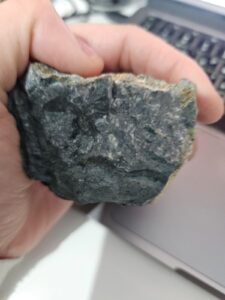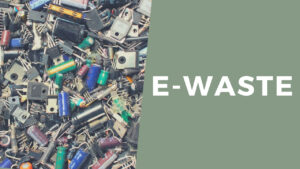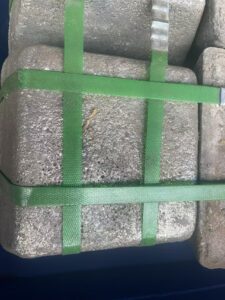Mineworx Technologies Ltd (TSX.V: MWX) has recently completed the construction of a pilot plant that is expected to enable high-yield recoveries of Platinum Group Metals (PGMs) from spent diesel catalytic converter units. Diesel units provide notoriously poor returns for most smelters, but Mineworx’ patented chemical process will allow the reclamation of platinum and palladium with a projected yield of more than 90%.
Mineworx will likely be the first to the table with a clean and efficient method of recovery, and has already established a supply agreement and formal partnership with a reputable recycler. Feedstock is abundant and PGM prices are at all-time-highs, and with Mineworx the only company processing units in this way, the company’s revenue forecast of over $100 million annually for each fully-scaled plant looks pretty sturdy.
Background
80% of the world’s palladium and 50% of its platinum goes into catalytic converters each year: Around 12.6 million ounces of precious metal, most of which is mined, is distributed across tens-of-millions of exhaust systems, where it stays for around ten years. The market for recycling PGMs from these units is well-established and lucrative, but smelters have developed a strong preference for non-diesel units.
The vast majority of Diesel Particulate Filters (DPFs) and Diesel Oxidation Catalysts (DOCs) are resultantly not recycled. These units are less profitable than standard catalytic converters and introduce additional risks into the smelting process, and many have come to reject them entirely owing to climbing inventories.
Sales of DPFs began in 2006, and given the roughly-decade-long lifespan of a DPF/DOC combo, the number of scrapped units is growing; each featuring 10-20g of precious metals, less than a third of which is recovered by current methods. With the yields expected of Mineworx’ latest innovation, however, reclaiming this platinum and palladium will become highly economical.
Enter Mineworx
Mineworx’ strategy is to build these units all over North America, moving to become the only company in the world extracting palladium and platinum solely from spent diesel catalytic converters. Owing to its efficacy and eco-friendly approach, this process is likely to become the only viable solution for the millions of diesel units reaching the end of their lives over the next decade.
The Biden Administration is committed to more stringent emissions regulations, which is cultivating a favourable landscape for cleantech solutions, boosting demand for platinum and palladium for new vehicles, increasing the supply of spent units, and offering support to the current price levels.
Valued at $12 billion in 2020, the market for catalytic converters is expected to be worth more than $18 billion by 2026, thanks in no small part to the quantity of precious metals involved. Major recycler BASF also announced that it will expand its South Carolina PGM refining facility with more than $10 million of investment to increase capacity to recycle spent catalysts.
Without smelting, Mineworx will produce a concentrate for upgrading at a refinery. Recovery rates per tonne of feedstock have been forecasted at 1,500 grams of platinum and 170 grams palladium, and a fully-operational plant will be able to process 10 tonnes per day, and at current PGM prices, will generate $100+ million annually with a gross margin of ~20%.
A letter of intent with Davis Recycling was signed in 2020, and in June 2021 the companies created PGM Renewal LLC, with Mineworx and Davis taking 55% and 45% equity, respectively. Davis is a leading catalytic converter recycler on the US eastern seaboard and has green-lit a supply of spent converters to meet the needs of a fully commercialized facility.
In July 2021, construction of the pilot plant was completed, and the technology is on the verge of being operational. An integrity testing program is underway and should be complete by the end of August, when Mineworx will ship the functioning unit to Davis Recycling for process optimization before it commences operation.
Davis has recycled base and precious metals since 1988, collecting product from customers in 13 states for processing at its 12-acre facility in Johnson City, Tennessee. From a distribution perspective, this is a great location for serving the entire United States.
The completion of the pilot plant is seemingly behind the 20% rise in the company share price around the time of the announcement, which is still sitting at a bargain price of $0.10CA at the time of writing.
The CleanTech Revolution
Unsurprisingly, investment in cleantech is on the up again this year. Various industries are earnestly engaged in the development of technologies to reduce reliance on so-called dirty processes. Mineworx’ core values are very much in line with this mindset: Pledging to be eco-friendly, efficacious and economical, they aim to reduce water consumption and discharge, prioritize energy-efficient design, and work without toxic chemicals and tailings ponds.
Sourcing recycled metals is generally cheaper than mining and generates up to 90% less CO2, but Mineworx’ process does away with combustion altogether while still managing a higher-grade concentrate than is typical. That’s one less smelter in the supply chain and a significant reduction to the quantity of ore that would otherwise be dug up, milled and refined.
But the benefits of this cleantech when compared to mining reach far beyond emissions reductions. From a business perspective, the method lowers operational costs and pretty much does away with site remediation costs; the permitting process is smoother and speedier, the plant has a smaller environmental footprint and minimal infrastructure is required.
Lessening overall environmental impact has become a top priority around the world, and Mineworx has developed a number of solutions that tap into this trend and make the mining process more green: A cyanide-free precious metals extraction process, an eco-friendly grinding mill, and a mobile ore processing unit that recycles its own water are among the solutions that the company has developed.
The massive cost of establishing and running a conventional grinding and milling circuit normally prohibits smaller or older deposits from being considered feasible. These mobile-orientated processes will dramatically reduce the cost and environmental impact of metals extraction, making such deposits far more lucrative.
The Cehegín Iron Ore Project
To this end, Mineworx holds two land packages in Spain that it intends to develop into producing mines. The Cehegín Iron Ore Project was previously mined for over 4 million metric tons between 1975 and 1989 by the then operator Altos Hornos de Vizcaya, producing a premium quality iron ore concentrate for use in their own Spanish steel mills.
With the entirely different business model made possible by the company’s technologies, this end-of-life property could end up reducing the EU’s reliance on imported ores. The European steel industry remains extremely dependent on imports, requiring approximately 135 million metric tons annually and making the EU the 2nd largest import market for iron ore behind China.
Mineworx’s exploration permits are in place and they are currently drilling the property. The objective of the drill program is to confirm the 25 – 30 million ton mineralization outlined by the previous 38,000 metres of drilling on the property, with the aim of arriving at a National Instrument 43-101 resource estimate.
During 2015, a 1,212-line-kilometre helicopter-borne magnetic survey was completed that provided an excellent resolution of near-surface magnetic sources, most of which are judged to be quite shallow, suggesting near-surface mineralization.
Looking for minerals where minerals have already been confirmed to be is one of the oldest tricks in the book, but getting it out at sufficiently low cost is always key. Mineworx’ collection of technologies gives the team a real shot at success in an underutilized market segment.
The Team
Greg Pendura, President, CEO & Chairman has more than 35 years of experience in founding, financing, and advising emerging private and public companies. Mr. Pendura spent 12 years in the public sector with Resin Systems Inc. and has been with the company since 2009.
Don Weatherbee, CFO & Chairman, has a Bachelor of Commerce (University of Alberta), a CPA, CMA from the Chartered Professional Accountants of Alberta, and a Certified Information Technology Professional (CITP) designation from the American Institute of Certified Public Accountants. Has over 21 years in the mining industry and over 15 years in senior executive roles in various financial and business systems.
Fabricio Maia P.Eng, Director of R&D, has an MBA in Management from UFMG in Brazil and a Master Applied Science in Mining and Mineral Processing from the University of British Columbia, and over 18 years experience in the mining industry, including management roles with VALE, Anglo American & CSN.
Final Notes
As is commonplace in the context of competing intellectual properties, Mineworx’ new IP has been the subject of a civil suit by a competitor who claims that Mineworx has used its IP without permission. Mineworx has made it clear that it denies these allegations, which the company views as frivolous and without merit. Mineworx intends to vigorously defend the Civil Claim and to take all steps available at law to protect its interest and position going forward.
Once the plant is successfully producing PGMs, achieving scale is only a matter of time. We expect Mineworx’ share price will benefit profoundly from the cheap and eco-friendly production of palladium and platinum from an abundant feedstock, and investors are encouraged to follow the Mineworx story closely.
To learn more about Mineworx Technologies, click here.








